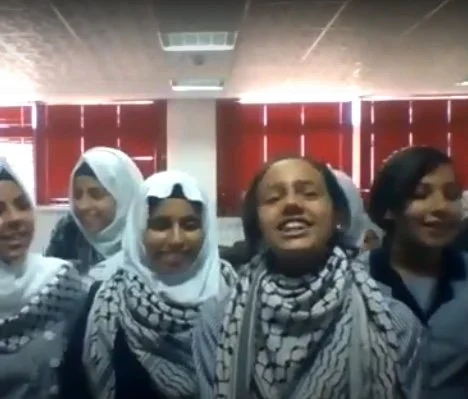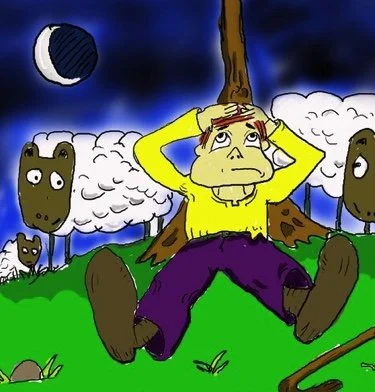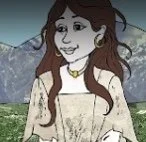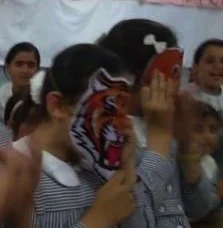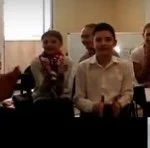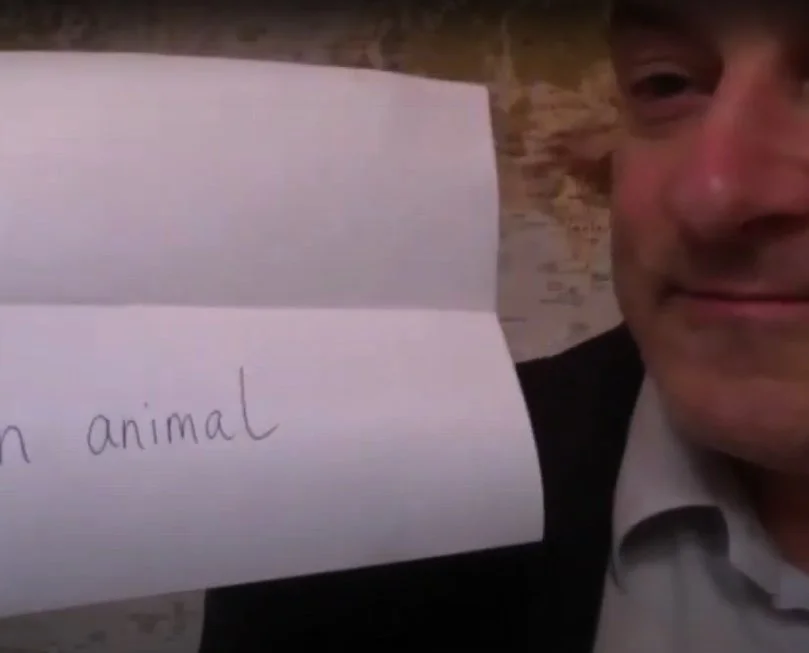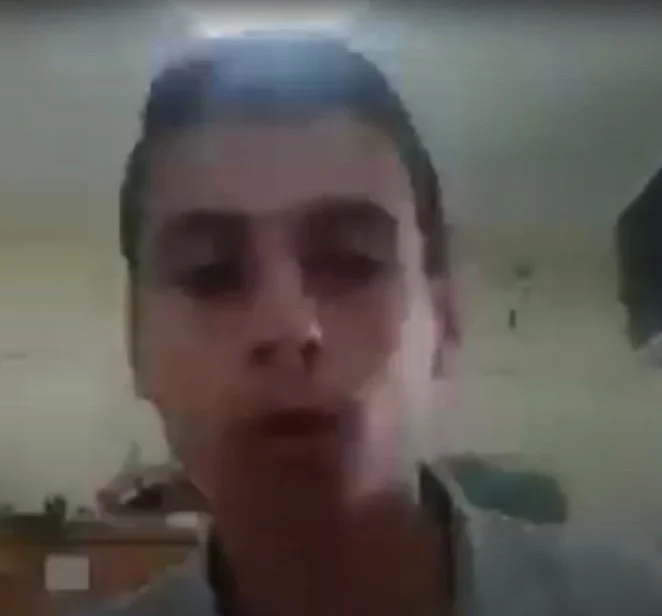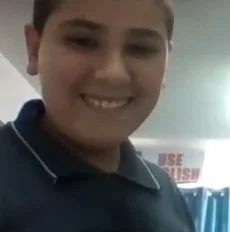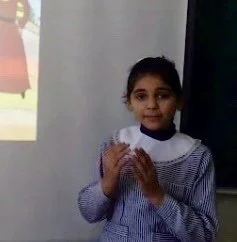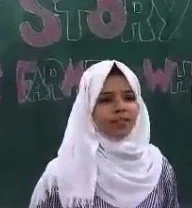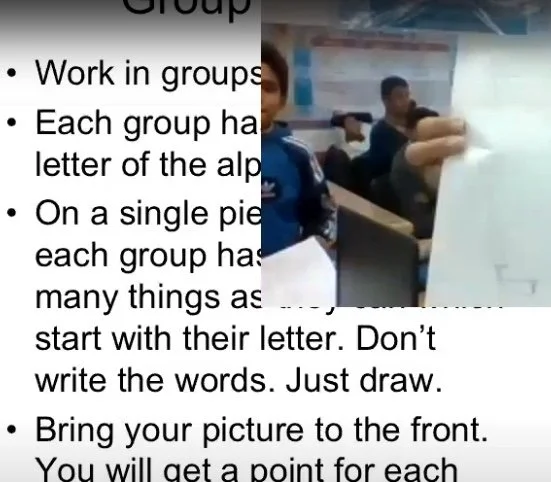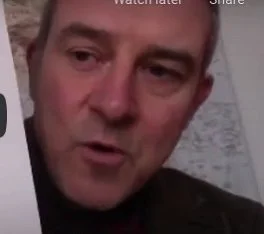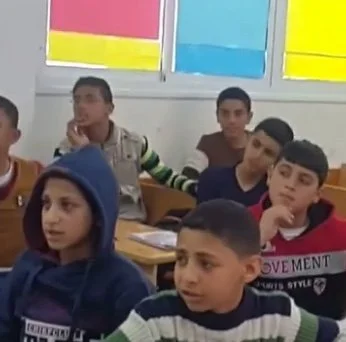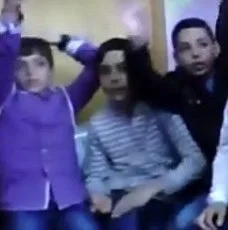I've been so busy lately I haven't had much time for blogging, but this week we've got something special - a guest post from Amal, an English teacher who works with teenagers at the UNRWA school in the Khan Younis refugee camp, Gaza.
Read MoreLast week we arranged a live link up between her students and a group of grade 12 students at a secondary school here in the UK. Here’s Amal’s post about what happened…..
Read MoreDespite all the hype about learning styles in recent years, it's a well known fact, backed up by research, that our ability to remember images outperforms our ability to remember other forms of data, such as written words, sounds, or smells. In one study, cited in Medina (2008), people were shown 2500 different images - each one for just 10 seconds.
Read MoreTeacher's aren't doctors but sometimes we're made to feel like we are :-) I was at a conference recently and a teacher came up to me with a wry smile on her face. 'I have a problem,' she said. 'You know that chant you did in your workshop last year? It goes like this ...Juha! Juha! What are you going to do? The cat came home and ate the meat and nothing's left for you!
Read MoreThe difference between theatre and classroom drama is that in theatre everything is contrived so that the audience gets the kicks. In the classroom, the participants get the kicks.'So how can second language learners benefit from performing in a play?
Read MoreLast Saturday we had a rather special zoom meeting between Sahar Salha's class at the Elementary co-ed “A” UNRWA school in Beit Hanoun, Gaza and Alex Guzik's class of kids in Krasnodar, Russia.It started with the Russian children performing their own excellent interpretation of the traditional Palestinian story, The Farmer who followed his dream.
Read MoreA while back I saw a pretty impressive video on youtube and since then the images from it keep filling my head. It begins with a camera shot from space showing earth as a distant object and then gradually moves closer and closer, zooming in on the world, the continent of Europe, the UK, London and then, eventually streets, houses and finally people become visible.
Read MoreA few weeks ago I was one of the speakers at the IATEFL Pre-conference event organised collaboratively by the C Group and the Global issues special interest group. Towards the end of the day we were given a talk by Julie Pratten about her project Heart ELT which has set up a school in a refugee camp in Iraq. At the beginning Julie gave us all a blank postcard and told us that we would be doing something with it later. As she approached the end of her talk she asked us to use the postcard to write a message to the children in the camp.
Read MoreMost of what I'm doing in my online sessions with kids uses material from here but this week I want to focus on something a bit different. One area of storytelling that I haven't really looked at so far with these posts is working with picture books. With very young learners especially, I've often felt that if all teachers ever did was tell their kids stories from these books, then something very useful would be going on.
Read MoreMost of the Hands Up Project's work is with younger learners in Gaza but I also have a group of teenage boys who live in a village near Ramallah with whom I do a weekly session. In the beginning I found it difficult to organise online classes that really addressed this group's needs, but, in consultation with their teacher Atiyyeh, a way of working has emerged which seems to be much more useful.
Read MoreDrilling is often criticised for being an old fashioned, teacher controlled activity with minimal cognitive challenge for learners. But the central idea behind it – that of pushing learners to process and reproduce a stretch of spoken language after a model from a more advanced speaker - can, in my opinion, be a very useful component of good teaching.
Read MoreAs a teacher and teacher trainer, this has been an area of interest of mine for a long time, and it's something that I thought about a lot when I was writing Memory Activities for Language Learning. In my talk I'm going to be focussing on the conflict that exists between teacher training programmes and exam systems in many parts of the world
Read MoreI can't remember where I first heard this story but I included this version of it in the introduction to the Stories Alive material, and its central message about the power of personalisation in learning has always resonated with me.
Read MoreWhere do ideas for teaching come from? And where, indeed, do they go to? Increasingly I feel that they evolve organically out of classroom practice and out of collaborative dialogue between teachers, and between teachers and learners.
Read MoreEndings are tricky for me. When I get to the end of telling a story, I can feel quite uncomfortable, and I'm never really sure whether to just pause, or to say something like 'And that's the end of the story' or 'And they all lived happily ever after'.When we're using stories for language teaching (or indeed for any other purpose) that could be all that is necessary of course; we could just leave the story to do its work on its own.
Read MoreUsually when I write this weekly blog post I share it first with the various Palestinian teacher and teacher trainer groups that I belong to on Facebook, before sharing it elsewhere. I do this because it is this kind of audience that this blog is intended for. I want this to be a space where teachers who work in contexts like these can get new ideas, where they can download resources, and where they can discuss and share ideas about what happens in their own classes.
Read MoreTwo weeks ago I wrote a post called 'The Game of Jewels' about the strength of activities like Kim's Game, which emphasise the importance of noticing and retrieval. I said that most of my favourite things to do in class are really just adaptations of Kim's Game so, as promised, here's a version which uses the same principles, but which is more suited to teenage learners.
Read MoreSometimes when we think of drama we think of Shakespeare, or we think of complex archaic language, or we think of struggling to feel the motivation for a particular line, or if, like me, you went to primary school in Britain in the 1970's, you may think of standing for what seemed like hours and being a tree!But drama as a tool for teaching English as a foreign language to young learners can be a much more straightforward and down-to-earth matter.
Read MoreI love doing activities in class where children feel enthusiastic about contributing. The kind of thing where they've all got their hands up, shouting out 'Ana..Ana.. Ana!' (Me ...me...me). One such activity is 'The game of jewels' as it was referred to in Kipling's novel, or 'Kim's Game' as it has come to be known in the field of ELT.
Read MoreAs human beings we are programmed to make sense of the world around us through stories. In some format or other, telling or listening to stories is a principle part of the way we interact with others on a daily basis. Because of this, in homes and more formal educational settings alike, stories have been used to teach things to children since the beginnings of human speech, and all of the major religions of the world have used stories and storytelling as a way to put complex ideas into a format which is simple, accessible and inherently memorable.
Read More
